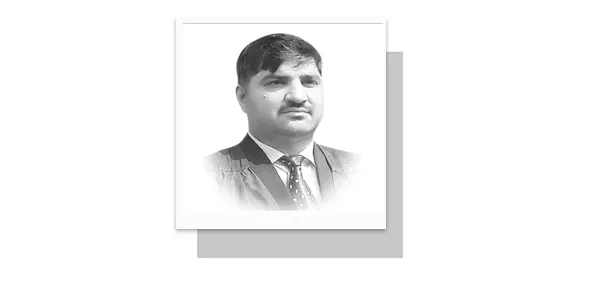MODERN democracy is participatory in nature wherein the people participate in political decision-making process through their elected representatives at local and national levels of political system. Meritocracy of leadership is the spirit of modern democracy. Every constitution of the world grants the right to vote and to take part in electoral process either as a voter or a candidate. Likewise, the Constitution of Pakistan-1973 also grants the same rights to its citizens. The first ever general election in Pakistan was held in 1970. Later on, each time the elections were subjected to rigging by the loser parties and made them controversial which led the country to political and economic turmoil.
Election is a constitutional, legal and political process to enable the common citizens to elect their representatives to form government for their welfare based on accountability, transparency, indiscrimination, communalism and meritocracy. Vote is constitution, legal, political, social, moral and religious contract between the electors and his representatives. A voter must be very much careful and calculated in choosing representatives to legislatures. If a voter selects and elects a wrong person while prioritizing his personal benefits, then such a voter is equally responsible for wrongdoings of such an elected representative; and such a voter is a national criminal because he has compromised the communal good for selfish desires. If his elected candidate is involved in sinful acts, then he has equal share in those sins. The voter must avoid electing those candidates who spread hatred in society by using various cosmetic slogans in the name sectarianism, narrow ethnic-based nationalism and religion.
Ironically, the use of bullet instead of ballot, use of money in buying votes, character assassination, mud-slinging, use of misinterpretation of religion for political manipulation and betraying of less educated innocent masses, dynastic politics, demonstration of intolerance, demonstration of weapons, etc., are some despicable characteristics of Pakistani electoral culture. Such cultural traits have no moral, legal, constitutional and Islamic standings. In Pakistani politics, religion is used as opium to intoxicate the minds of the electorate. The poor voter is perturbed and higgledy-piggledy to elect whose candidate of which religious-political parties. The religious parties have divided the nation into various factions rather to unite it. This reflects the ulterior motives of each religio-political party that that has nothing to do with religion but using religion for political purposes. Likewise, the ethnic-based nationalist political parties while projecting themselves as progressive, democratic, peaceful and custodians of human rights are myopic in their approach towards other fellow beings. These parties foment hatred among various segments of the society while alienating the other members of the society. Their biased approach also breeds sense of insecurity among other people of the society.
Unfortunately, the people in Pakistan behave like emotional-beings instead of rational-beings. They use rhythm of their hearts instead of brain for national cost and benefit analysis. Political leadership, therefore, easily exploits the sentiments of innocent people through false promises and hopes. A few political families are involved to field their own family members in electoral process to capture highest positions in government machinery and to legislate and execute laws to safeguard their selfish interests instead of interests of a poor man. It is also evident during PDM-led government. Similarly, in the current elections dynastic politics is more visible. Religious (except Jamat-i-Islami) and secular political parties have distributed seats among their own family members; and they ignored the common workers. These political parties have lost ideological basis.
In this process, the fundamental obligation of the voter is to elect such a candidate whose credentials, character and honesty etc are known to him; and to avoid electing dishonest, corrupt, criminals and family-oriented sham-political-leadership. This will help flourish a competitive political culture in a society wherein a leadership arises from a street not from a parachute. Contrary to this, people’s candidates must observe all legal obligations, moral ethos, social norms and Islamic teachings to pave the way for peaceful electoral process. They must avoid confrontational politics. Let the constitutional, legal and political process complete for the smooth transition of power to a civilian government. The representatives of the people must not forget the sanctity of the vote of a common man. They must avoid dirty politics by targeting the state security institutions for political gains. Such practices have disastrous corollaries for the national security and national integration. The Election Commission of Pakistan and civilian governmental institutions must take all possible measures to implement the electoral code of conduct. They must uphold uniform approach towards all political parties. We, as a nation must, learn from our political and electoral history. We must behave responsible citizens to cast our vote keeping in view our ideological foundations and national integration. In short, we need to flourish a democratic electoral culture instead of a militant electoral culture.
—The writer is Chairman, Department of Political Science, Islamia College Peshawar.
Email: amir@icp.edu.pk
views expressed are writer’s own.









